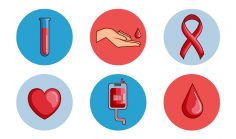Schizophrenia is a mental illness that affects a person’s ability to think clearly, process emotions, and make decisions. Schizophrenic activity in the brain can cause irrational thoughts and behaviors, delusions, extreme paranoia, and changes in personality.
Schizophrenia is a long-term illness, and unfortunately there is no one known cure, or universal treatment plan. Because schizophrenia can present itself in different ways in different people, treatment plans typically vary from person to person.
According to SARDDA (Schizophrenia and Related Disorders Alliance of America), an estimated 3.5 million Americans are affected by Schizophrenia, and only about 50% of those affected seek and receive proper treatment. Each year, it is estimated that Schizophrenia-related economic costs total between $32.5 and $65 billion dollars.











